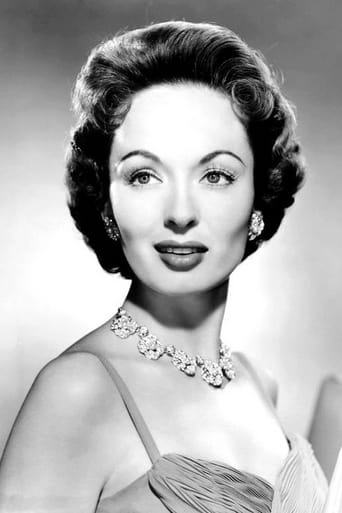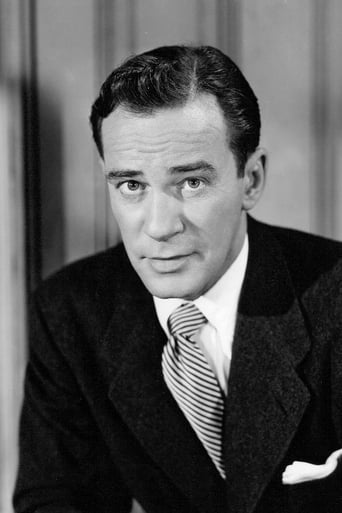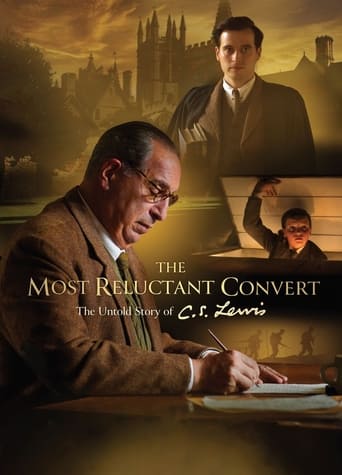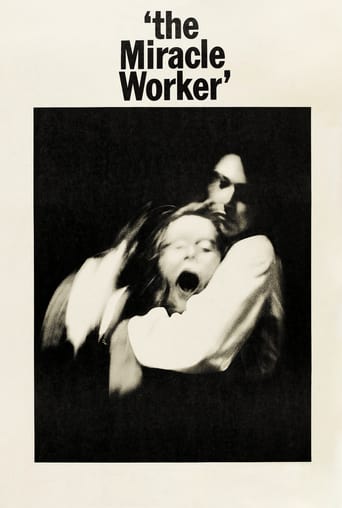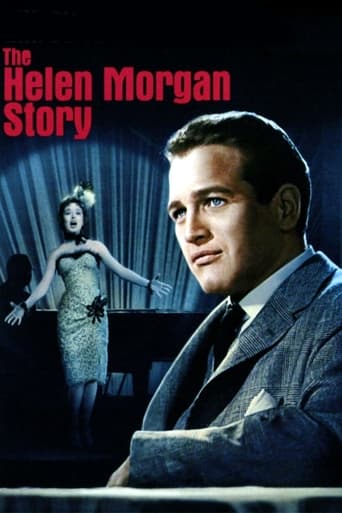
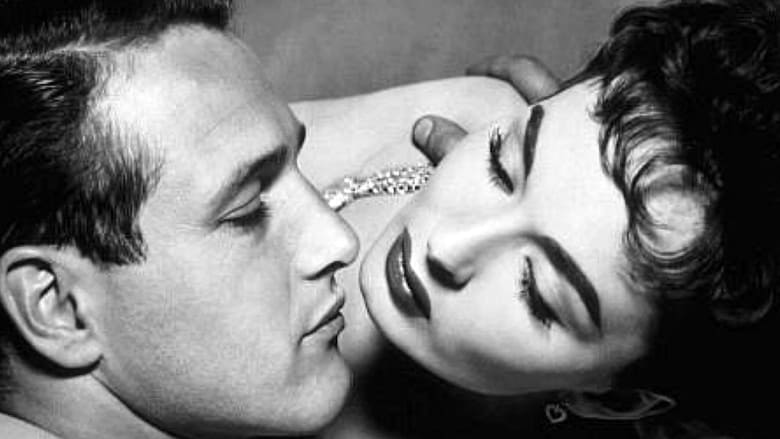
The Helen Morgan Story (1957)
Torch singer Helen Morgan rises from sordid beginnings to fame and fortune only to lose it all to alcohol and poor personal choices.
Watch Trailer
Cast
Similar titles
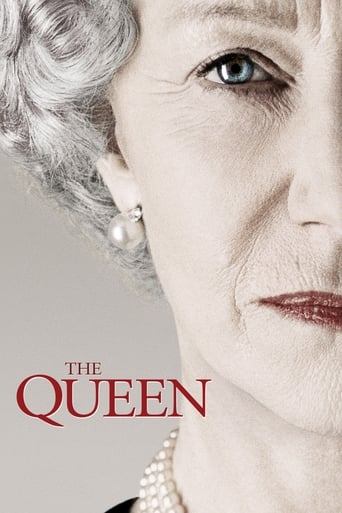
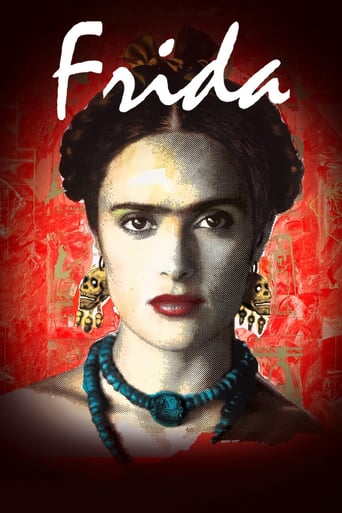
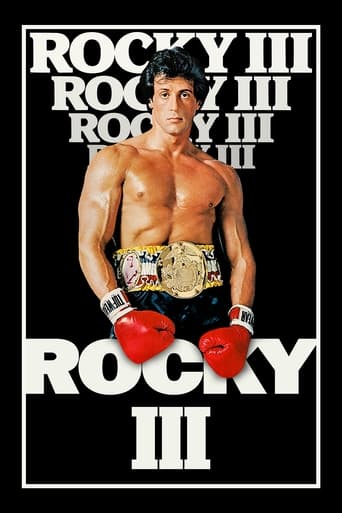
Reviews
Simply A Masterpiece
Must See Movie...
Although it has its amusing moments, in eneral the plot does not convince.
At first rather annoying in its heavy emphasis on reenactments, this movie ultimately proves fascinating, simply because the complicated, highly dramatic tale it tells still almost defies belief.
Producer: Martin Rackin. Copyright 1957 by Warner Brothers Pictures Corporation. New York opening at the Astor 2 October 1957. U.S. release date: September 1957. U.K. release: 29 December 1957. Australian release: 12 June 1958. U.S. and Australian running time: 118 minutes. U.K. length: 8,914 feet (99 minutes). U.K. release title: BOTH ENDS OF THE CANDLE. SYNOPSIS: Singer takes to drink.NOTES: Warner Bros purchased the rights to Helen Morgan's story from her estate in 1942 — a year after her death. The title role was initially offered to Susan Hayward — to capitalize on her success in "I'll Cry Tomorrow" — but she turned it down. COMMENT: Despite its simple, melodramatic, "Love Me Or Leave Me" triangle framework, "The Helen Morgan Story" is not only unwound at a wonderful pace, but given such breadth that it introduces a whole host of interesting support characters and diverting scenes. True, Ann Blyth is not much of an actress. She never was. But it still comes as something of a shock to see such a poor performance here, considering that she responded so effectively to Curtiz's direction in "Mildred Pierce". Not only does she give little indication of Morgan's personality and charisma, she doesn't even look like her. Fortunately, all her singing chores are entrusted to Gogi Grant, a splendid vocalist who really gives the old Morgan standards a great run. The many welcome musical interludes are, for the most, simply staged, but marvelously effective. And what a great score! In the Cagney role, Paul Newman gives a smashing, hard-edged performance — right up to his last-minute change of heart (which is the least believable plot twist of all the unbelievable episodes the writers have managed to dream up). In fact, Newman's powerful portrayal of the embittered gangster ("I got a chest full of medals") brings what could have been a conventional, clichéd character to vibrant life. Newman projects a magnetism that makes both his portrait and Morgan's reaction to him utterly believable. (Compare Omar Sharif's tepid and lackluster interpretation of a similar nemesis in "Funny Girl"). By contrast, co-star Richard Carlson is weak as water (as usual), but Cara Williams — more attractively gowned and photographed than Blyth herself — and Alan King head an energetic and highly ingratiating support cast. Alas, Rudy Vallee appears only briefly (but enjoyably). In addition to numerous other incredible liberties that the script takes with Morgan's "life", insult is added to injury when no mention whatever is made of the star's Hollywood fling in such films as "Applause", "Roadhouse Nights", "Sweet Music", "Go Into Your Dance" and "Show Boat". In fact the "story" ends with a spurious, happy re- union stolen from "The Joker Is Wild".But what does truth matter? When the songs, the lighting, the director's firm control and occasional inventiveness (Curtiz just loves to work with a mammoth budget), the crowd and street scenes are so marvelous. The number and variety of sets, their depth, the vast number of extras, Curtiz's tight CinemaScope compositions, all overwhelm us with a fabulous sense of period. Above all, Ted McCord's superb black-and-white cinematography (some of the outdoor, Depression shots have the look and texture of Steiglitz photographs) entrances the senses with its wondrous lighting. Always most attractive just to look at, "The Helen Morgan Story" is a terrific example of Hollywood craftsmanship at its best. It's a shame it wasn't appreciated for the gem it is at the time of its original release. Most critics homed in on the fictitious story line, dismissed Blyth's impersonation, and let it go at that. I say, never mind the flaws. Judge the movie as entertainment. Is the story interesting, is the acting engaging, are the songs and singers absolutely captivating? My answer is yes, yes, yes!
The movie doesn't come up to the height of Love Me or Leave Me. The reviews of the day called it a soap opera and it has that feeling. Love Me or Leave had a better script and a better cast. The reason that Blyth was miscast is the same reason that they didn't use her voice (Gogi Grant dubbed over all the singing). Blyth doesn't have the emotional heft to match the torch-singing quality that is necessary for the part or necessary to match the dubbed singing by Gogi. A more powerful actress would have made the scenes with her and Newman much better. His acting ability stands out of course, but it is mostly wasted on this script. Who would have been perfect for this?...easy...Judy Garland. She may have looked to old for the part at this point...she didn't have the beauty of Blyth...who was a good singer in her own right...but not for this. Blyth looked like Morgan...and she was fantastic in Kismet...perfect. I had the pleasure of meeting her about 10 years ago and shared some coffee with her and her husband. She's a lovely lady. This movie is just lacking.
Mostly fictional, miscast biographical hogwash of hard luck songtress Morgan. Ann Blyth, in her last theatrical feature, was the wrong actress for the title role, many were considered she was probably the least suitable, so the film starts off with a major flaw from the get go. Judy Garland whose style especially when young was compared to Morgan's would have been ideal. Another shortcoming is that although Blyth was a singer whose voice was relatively close to the real Helen Morgan's she is dubbed by Gogi Grant, also a fine singer but completely different from Morgan in sound and technique. If they were going to dub her why not use Helen Morgan's voice? Curtiz direction is unremarkable here, a few of his more customary florid touches would have helped greatly. Paul Newman who was just starting out when this was made is adequate but missing that loutish air that is needed for the reptile he is playing either Kirk Douglas or Robert Ryan would have been more suitable. The real Morgan story is a compelling one so this comes off as a wasted opportunity.
With a song in her heart, Helen Morgan was one of the top Broadway divas of the pre-Ethel Merman era. By the 1950's, such chanteuses as Jane Froman, Lillian Roth, Blossom Seeley and Ruth Etting had their stories told on film, so it was inevitable that someone did Morgan's. Polly Bergen did this story for TV, but Ann Blyth, the lovely soprano of "Rose Marie" and "The Student Price", got the movie-and got dubbed by a recording star-Gogi Grant. In those operettas, Blyth totally tossed out the memory of Veda from "Mildred Pierce", but by 1957, musicals were slowly being phased out on the big screen. Perhaps formula stories like this (plus plenty of musicals filmed for TV) were responsible, as more and more they reeked of familiarity. With this one, the formula combined with two recent similar stories, "The Lillian Roth Story" ("I'll Cry Tomorrow") and "The Ruth Etting Story" ("Love Me or Leave Me") to glue its plot together.Lillian Roth fought alcoholism and Ruth Etting was at the mercy of a mobster, and here, Helen Morgan is both. This provides plenty of drama, but unfortunately it is mashed together in an unconvincing manner that the other films managed to dramatize. Here, Paul Newman is the duplicate of "Love Me or Leave Me's" James Cagney. Unfortunately, as magnetic as Newman is, his character is weakly developed and lacks the heart Cagney displays in his Oscar nominated role. Richard Carlson is good as the equivalent to Cameron Mitchell's "Love Me or Leave Me" character, a basic good guy stuck in a loveless marriage. It's all predictable what happens in both relationships.As for Blyth, she does very well exploring Morgan's downfall and in spots, really captures her changing image. Gogi Grant's vocal range is appropriate to the downfall as well, and at times has voice mannerisms close to Judy Garland whom it is rumored was a contender for this role which may have been too close to home. But what fails to come through in her performance is the ambition, overwork and despair that would drive her to become a lush.There are many great standards and of course the two songs from "Show Boat" which have become her signature songs. Unfortunately, they are only heard as cabaret numbers, not shown being performed in the Broadway production or shown being filmed for the magnificent 1936 film version. In black and white more suited for early TV, the film lacks the impact the same story would have had if it was made 15 years before, as do many films of that era set in the 1930's. Then, the ending comes along, repeating one seen in one of the musical bios I discussed earlier, and on comes a major let down and lack of originality. Blyth shines, however, in a drunk scene in a New York dive where she badly sings along to a recording of herself on the radio.
